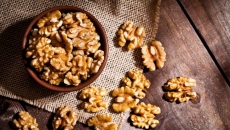Photo courtesy of IStock.
Obesity is an emerging public health problem of epidemic proportions worldwide. As to WHO, globally, obesity has nearly tripled since 1975 and as per 2016 data 1.9 billion adults are overweight or obese.
Unhealthy dietary habits are a major modifiable factor, leading to obesity. India too is battling this full-blown crisis of malnutrition which has worsened over the years in addition to undernutrition and micronutrient deficiency.
The increase in the prevalence of overweight and obesity are important predicting indicators of their relationship with Non-Communicable Diseases (NCDs) such as metabolic syndrome, diabetes, high blood cholesterol, high blood pressure, atherosclerosis, heart disease and cancers that today are plaguing the nation.
This increase in NCDs is partly due to a shift in lifestyle with a higher intake of calorie-dense foods, high in refined cereals, sodium, sugar, saturated fat, processed meats, packaged foods and Transfats and low intake of vegetables, fruits, fibre, nuts and seeds coupled with a decrease in physical activity levels.
Consuming good amounts of fruits and vegetables at 300g of vegetables and 100g of fruits, as recommended by ICMR in addition to pulses, cereals, millet and other plant foods are known to be protective against diseases caused by chronic oxidative stress. This benefit is both due to consuming these plant-based foods which have health-promoting compounds and due to a decrease in the consumption of excess processed foods and red meats.
The protective nature of plant foods is due to the combined benefit of fibre and phytonutrients they contain which provides protection against the initiation and progression of the disease. These beneficial components of plant foods include phytosterols and antioxidants.
Polyphenols are a group of plant-derived functional components and are categorised into lignans, phenolic acids and flavonoids based on their different structures. They have various biological activities including antioxidant, anti-inflammatory, anticancer, antiviral and antibacterial properties and play an important role in preventing NCDs which are on the rise.
They are also potential prebiotics which regulates the intestinal flora and prevent dysbiosis and maintain gut health and overall health. To ensure a healthy balanced vegetarian diet all the macro and micronutrients should be adequately included in the diet.
Carbohydrates (CHO) are the main source of energy whereas Complex CHO has many other additional health benefits too. It provides dietary fibres - both soluble and insoluble which play a major role in disease prevention. Including fruits, vegetables, and pulses and choosing whole grains like wheat, oats, barley, quinoa, corn and millet improves the nutritional quality of food intake.
Millets are a group of cereals which have many health-promoting attributes, they are gluten-free and have higher amounts of proteins, minerals, and vitamins and some even have a low Glycaemic Index (GI) when compared to wheat and rice. Sorghum (Jowar), pearl millet (Bajra), foxtail millet (Kangni), and finger millet (ragi) are some of the important millets. They are a good source of fibre and have health-promoting vitamins, minerals, phenolic acids and flavonoids, in addition to their potential prebiotic and probiotics health benefits.
With so many health benefits it is good to include these 'Nutri-cereals' with a variety of other grains on a daily basis to get the benefit from all. ICMR recommends 1/3 of the cereal intake can be these healthy millets.
Proteins have a wider range of functions in the body. Recommendations as per ICMR are to consume 0.6-0.83 gm /kg body weight of proteins. Including vegetarian protein sources such as pulses, beans, soy, milk and milk products and nuts and seeds and also combining cereals with pulses complements proteins and ensures adequate intake.
Fats and oils are an essential component of a balanced diet providing the essential fatty acids besides helping in the absorption of fat-soluble vitamins - Vitamin A, D, E and K. The fat consumption of 25-40g (5-6 teaspoons) per person/ day of visible fat such as oils, ghee, butter etc. depending on the energy requirement.
It is recommended to decrease the consumption of Saturated fats to less than 8-10 per cent of the energy obtained from animal products, coconut and palm oil and include monounsaturated (MUFA) and polyunsaturated (PUFA) fats (in the ratio of 1.3:1 respectively) from nuts, avocados, seeds, and oils of olive, safflower, sunflower, corn and oil, safflower, canola in the right proportion.
An adult should ideally maintain a 5-10:1 ratio of Omega 6 to Omega 3 PUFA for all the essential functions in the body. Omega -3 is known to support heart health, improve mental well-being, and reduce depression and is important during pregnancy being critical building blocks of the fetal brain and retina. Vegetarians should include nuts, seeds, whole grains, legumes, and vegetable oils of soy, and canola in their day's diet to get their required omega 3
Trans fatty acids (TFA), produced by partial hydrogenation of vegetable fat (Vanaspati ghee or margarine) are also found in processed, fried foods and are responsible for adverse effects on serum lipids. They are associated with increased levels of LDL (bad) cholesterol and decreased levels of HDL (good) cholesterol and hence, are worse than saturated fats for heart health. It is recommended that the intake of TFA should be less than 1 per cent of total energy intake, which is less than 2.2 g/day for a 2,000-calorie diet. (As per AHA)
Multi-source cooking oils combine the potency of two or more edible oils which improves the oxidative and thermal stability of oils and improves the balance of fatty acids and introduces phytonutrients to the blend. Consuming fats as blends is a viable option to get the benefit of both the oils used in blends and lower the risk of cardiovascular diseases. Studies have shown that a blend of rice bran oil and safflower oil (70:30) with added antioxidants showed improvement in blood lipid levels and inflammatory markers.
The mainstay of Good Health is a lifestyle change and a continued commitment. Consuming a balanced diet with adequate macronutrients comprising of complex carbohydrates from whole grains oats, millets, adequate plant-based proteins from pulses, beans, milk and milk products and nuts and seeds with adequate fruits and vegetables and healthy fats in the right proportion coupled with a good exercise regime is the mantra to good health.






